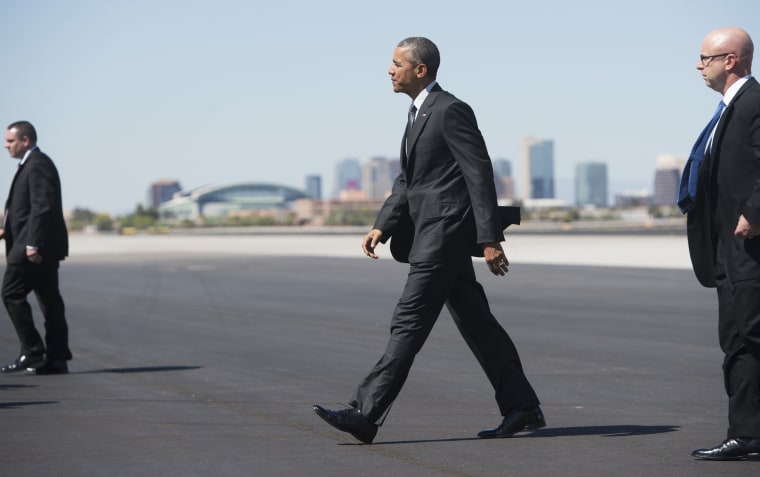"This is a fun job," President Obama tells VICE Media founder Shane Smith at the top of an 18-minute interview released Monday afternoon, responding to a softball question about the difficulties associated with the presidency.
But what follows aren't all softballs.
"Throwing a snowball would be funny," Smith says, referring to Sen. James Inhofe of Oklahoma's Feb. 26 stunt on the Senate floor, "if it weren't for the fact that's he's chairman of the Senate committee on the environment."
"That's disturbing," the president responds, adding, "I guarantee you that the Republican Party will have to change its approach to climate change because voters will insist upon it."
WATCH: Sen. Inhofe throws a snowball in the Senate
On the subject of governmental dysfunction -- specifically, the recent showdown over funding the Department of Homeland Security -- the president says despite how it might appear from from the outside, it's not simply a matter of both parties "being partisan."
"The minute you withdraw in that way from the process of politics, well, then you’re destined to have the existing power structures call the shots."'
Obama uses climate change as an example, saying, "Ninety percent of Democrats agree with me, and 90% of Republicans oppose any action on it, and a sizable portion of their party deny it even exists." "Right now," Obama says, "it's not both sides arguing and creating gridlock. You've got one side that is denying the facts, who are often motivated principally by opposing whatever it is that I propose. That's not inevitable to our democracy; that's a phase the Republican Party is going through right now, and it'll outgrow that phase."
Obama stressed the importance of voting as a means by which to combat political gridlock, citing poor voter turnout in the 2014 midterms. "The minute you withdraw in that way from the process of politics, well, then you're destined to have the existing power structures call the shots," he argues.
Is federal marijuana legalization inevitable, Smith asks, citing it as "our no. 1 question." First, Obama wants "young people" to know that it shouldn't be their top concern; climate change is more important, he says, before condemning the "criminal justice system, generally" for "cracking down on non-violent drug offenders." "We may actually be able to make some progress on the decriminalization side," he says.
Still, the president stops short of endorsing legalization, saying, "[T]here is a legitimate concern about the overall effects [substance abuse] has on society."
On the subject of ISIS, Obama says he is confident on the one hand, concerned on the other. "We will slowly push back ISIL out of Iraq. I am confident that will happen. But what I am worried about," the president says, "even if ISIL is defeated, the underlying problem of disaffected Sunnis around the world ... where a young man who's growing up ... who has no prospects for the future ... and this looks like the toughest gang in town, so let me affiliate with them ... that's a problem we're gonna have generally."
Turning to the now-infamous letter to Iran endorsed by 47 GOP senators, Obama says, "I'm embarrassed for them because it's not how America does business."
What should they have done instead? "I think it's entirely legitimate," he suggests "for my friends in the Senate who signed that letter to ask very hard questions about how can we assure Iran's not getting a nuclear weapon. Why would we lift sanctions now given how they're causing problems in other parts of the world? ... How can we even negotiate with them? ... We can have that debate."
But what they did, Obama calls "close to unprecedented," saying, "It damages the country; it damages our standing; it's not productive. In this day and age, where we've got such big issues, we can't afford it."
